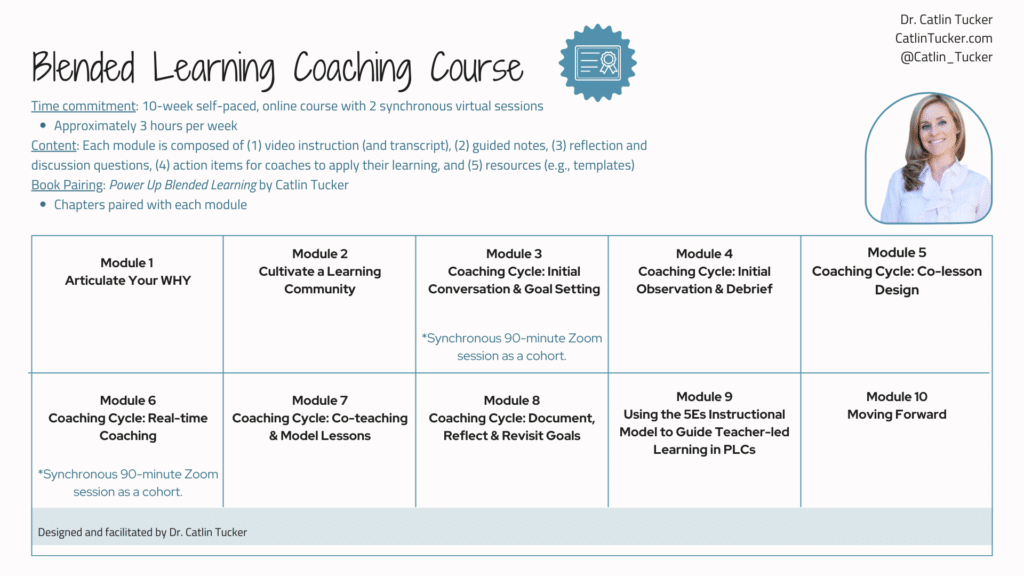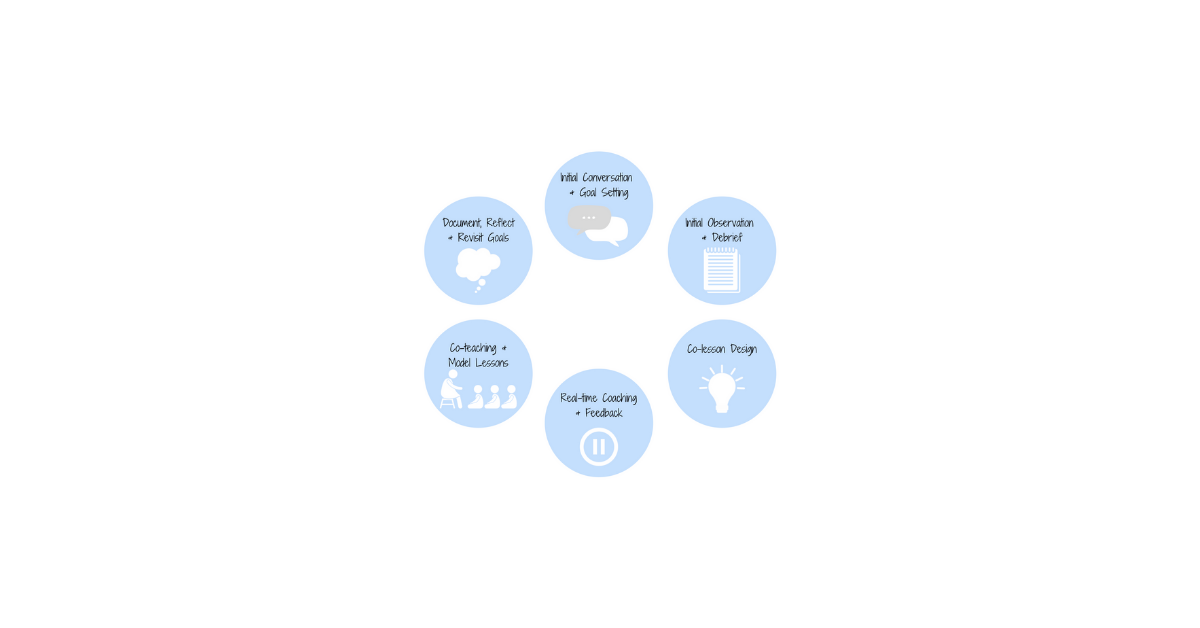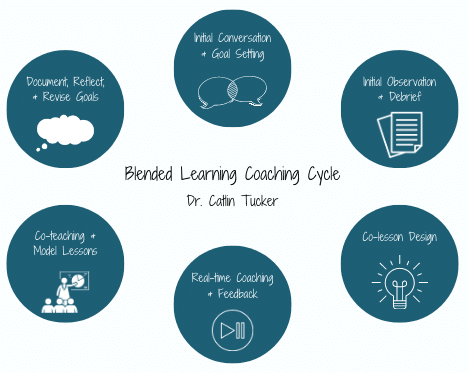The last two years have been mentally and emotionally exhausting for everyone in education. As I work with leadership teams, many struggle to engage their teachers in professional learning this year. Schools invested money in purchasing devices and improving access to reliable internet to meet the demands of the pandemic, and leadership teams want to keep the momentum going. They are excited about the potential of leveraging this technology to create more dynamic, differentiated, and student-centered learning experiences.
Unfortunately, substitute teacher shortages combined with teacher fatigue present challenges when offering and engaging teachers in professional learning. These all-staff training sessions often present strategies and models, but they do not support individual teachers in adapting these strategies and models for their specific grade level, subject area, or student population. Given the challenges of engaging teachers in professional development this year, I suggest leveraging the coaches on your campus and your district to offer a more personalized approach to professional learning. Just as with students, every teacher is unique. They have different interests, challenges, strengths, needs, and learning preferences. A coach can more effectively meet teachers where they are at in a coaching session or series of sessions as compared to an all-staff training.
When I train coaches who are supporting teachers in the shift to blended learning, I share my blended learning coaching cycle, which I wrote about in Power Up Blended Learning. Coaches benefit from having a clear structure and resources to guide their interactions with teachers.
Each step in the coaching cycle serves a specific purpose. Ideally, coaching will be sustained over time, allowing the coach to move through this cycle with each teacher; however, time constraints may make it necessary to focus on two or three stages of the cycle or transfer parts of the process online. Below is an overview of the benefit of each step of the coaching cycle.
Initial Conversation and Goal Setting
Coaching at its core is about relationships. If the teacher does not trust the coach or feel comfortable taking risks, the coaching sessions will not be positive or productive. It is critical to start with a conversation to build trust and establish rapport. I share a specific strategy called the dialogic interview to break down walls and immediately connect with teachers. I also ask teachers to articulate a goal they want to work toward in our sessions, so they have agency over the process.
Initial Observation and Debrief
The initial observation helps the coach understand where a teacher is beginning their learning journey. The goal of this initial observation is to be a mirror, not a judge. The coach must understand how the teacher is currently designing and facilitating learning. That way, they can ensure that the lesson they develop in the next stage of the coaching cycle is within the teacher’s zone of possibility. It is essential to “think big and start small” when onboarding a teacher to a new blended learning model.
Co-lesson Design
Co-lesson design is the stage of the coaching cycle when the coach works in collaboration with the teacher to design a blended lesson they can immediately use. When the coach and the teacher engage in this design work together, the coach can offer concrete suggestions to help teachers identify potential barriers and eliminate them by prioritizing differentiation, student agency, and student control over the pace of learning.
Real-time Coaching
Real-time coaching transforms the lesson into a learning opportunity for the teacher. It also sends a powerful message to students that everyone on campus is learning, experimenting, and improving. Real-time coaching also presents coaches with an opportunity to provide feedback on the lesson. Feedback is easier to give when coaches are using a blended learning rubric.
Co-teaching and Model Lessons
Co-teaching and facilitating model lessons allows the coach to support implementation or model strategies that the teacher wants to see in action before trying themselves. This stage in the coaching cycle can help teachers develop higher levels of self-efficacy or confidence in their ability to facilitate a lesson or employ a specific strategy on their own.
Document, Reflect, and Revisit Goals
The final stage of the blended learning coaching cycle prioritizes reflection. The coach can help teachers document parts of their lesson (e.g., video recordings) to review and reflect on, analyze data, or examine artifacts of student learning to identify what worked well and what might need to be modified or reimagined.
Blended Learning Coaching Course
I’ve created a 10-week course that includes the following ten modules to support coaches in developing their coaching skill set and blended learning knowledge.

One cohort is offered each fall! For more, check out the course overview on Teachable.



10 Responses
Hi Catlin,
The topic of coaching is prominent in many schools and is one of high interest at my current building. I am lucky enough to have access to two instructional coaches at my level who are available for coaching cycles. The concept of time and lack of subs has hit my school hard, too. It seems like there is always something in the way. Thank you for sharing your ideas and experiences!
Hi Heather,
That’s wonderful that you have access to instructional coaches! That makes such a difference when teachers are experimenting with new instructional models and technology.
I love coaching and am excited to work with other educators to explore a clear coaching cycle they can use to support teachers at this moment. I thoroughly enjoy my work and am thrilled if it helps other educators!
Take care.
Catlin
Hello–
Is there going to be another cohort?
I would love to apply but I have several commitments this fall.
Thanks so much!
Colleen
Hi Colleen,
Yes, I am planning to run a second cohort from March-April and a third cohort in the summer from July-August. If you are interested in being contacted with those cohorts open, let me know!
Take care.
Catlin
YES! I would love to be contacted for the March-April session. Thanks so much.
Will do, Colleen!
Do you have a recommended cycle for coaching students
No, I do not have a coaching cycle for students, Tamara. I focus more on metacognitive work paired with conferencing when it comes to our work with students.
Catlin
Hi~
I too am interested in attending this session but couldn’t do it this fall. I would like to be added to the list for the spring session. As for now, what would you recommend to build my background knowledge on blended learning? Is there a Facebook group or twitter hashtag to look for?
Hi Joan,
I can absolutely add your name to a list of interested folks for cohort two that runs from March-May 2022. I have a bunch of blogs on my website about blended learning if you do a keyword search. You can start exploring them prior to the coaching course.
I’ll be in touch when cohort two registration opens!
Catlin